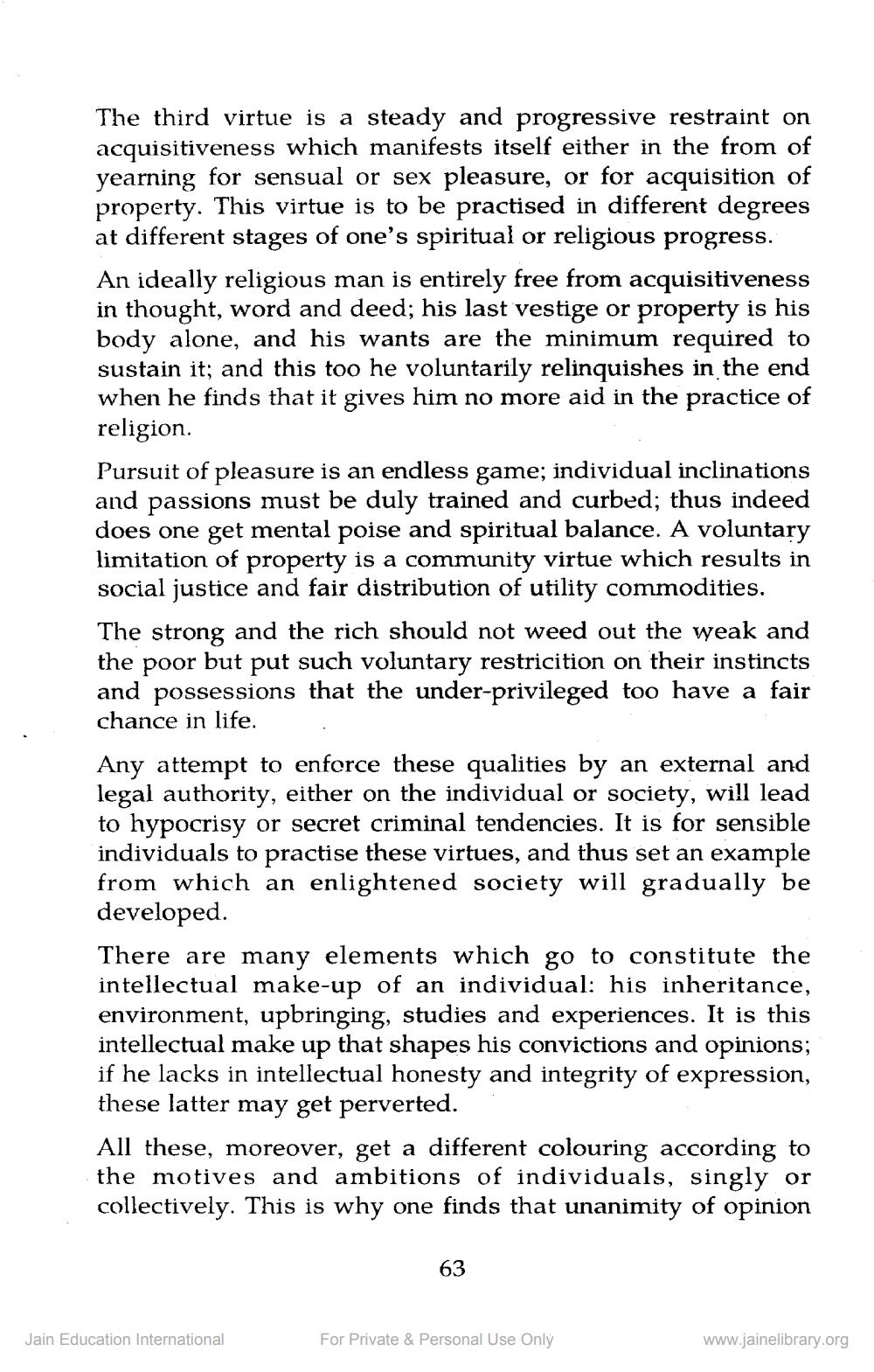________________
The third virtue is a steady and progressive restraint on acquisitiveness which manifests itself either in the from of yearning for sensual or sex pleasure, or for acquisition of property. This virtue is to be practised in different degrees at different stages of one's spiritual or religious progress.
An ideally religious man is entirely free from acquisitiveness in thought, word and deed; his last vestige or property is his body alone, and his wants are the minimum required to sustain it; and this too he voluntarily relinquishes in the end when he finds that it gives him no more aid in the practice of religion.
Pursuit of pleasure is an endless game; individual inclinations and passions must be duly trained and curbed; thus indeed does one get mental poise and spiritual balance. A voluntary limitation of property is a community virtue which results in social justice and fair distribution of utility commodities.
The strong and the rich should not weed out the weak and the poor but put such voluntary restricition on their instincts and possessions that the under-privileged too have a fair chance in life.
Any attempt to enforce these qualities by an external and legal authority, either on the individual or society, will lead to hypocrisy or secret criminal tendencies. It is for sensible individuals to practise these virtues, and thus set an example from which an enlightened society will gradually be developed.
There are many elements which go to constitute the intellectual make-up of an individual: his inheritance, environment, upbringing, studies and experiences. It is this intellectual make up that shapes his convictions and opinions; if he lacks in intellectual honesty and integrity of expression, these latter may get perverted.
All these, moreover, get a different colouring according to the motives and ambitions of individuals, singly or collectively. This is why one finds that unanimity of opinion
Jain Education International
63
For Private & Personal Use Only
www.jainelibrary.org




